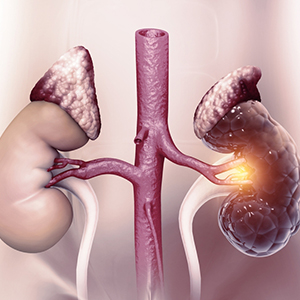Snakebite & with Renal Failure treatment in Vijayawada
Kidney is an exceptionally vascularized organ and vulnerable to venom toxicity. Clinical appearances start somewhere from couple of hours to 72 hours of snake bite. Renal symptoms incorporate flank pain, hematuria, hemoglobinuria, myoglobinuria, oliguria, and AKI. Some other symptoms may incorporate acute interstitial nephritis, extra capillary proliferative glomerulonephritis and cortical corruption.
Death rates from snakebite-related AKI is assessed to be up to 35%. Recuperation is complete in cases with cortical necrosis or extreme tubular necrosis with marked interstitial changes.
Does snake bite lead to renal failure?
Snake bite can cause acute kidney injury (AKI) through multiple mechanisms. A large number of these patients have severe kidney injury requiring renal replacement. The long-term result of survivors of such severe AKI isn't known.
What does the snakebite management include?
Management of snakebite incorporates emergency treatment, local wound care, anti-venom and steady measures. Immobilization of the entire patient, particularly the bitten limb is required, and transportation ought to be orchestrated to the close by hospitals. Tight tourniquets should be kept away from so that the limb loss is limited. Anti-venom is the specific treatment.

Visit poison kidney failure treatment in Vijayawada at kidney failure hospitals OR consult the best kidney specialist in Vijayawada. Dr. M. V. Sai Krishna assists the patients in the best possible treatments and renders the most effective kidney treatment in curing the disease.
He has more than 10 years of experience in managing various types of kidney diseases, chronic kidney patients, end-stage kidney disease patients, haemodialysis and peritoneal dialysis and intensive care nephrology. Visit Dr. MV Sai Krishna the top Nephrologist at Sunrise Kidney Centre offering Cardio Renal Disease treatment in Vijayawada
Frequently asked questions on renal failure associated with snake bite
What is the most common cause of renal failure in snake bite victims?
The most common cause of renal failure in snake bite victims is the venom of the Russell's viper (Daboia russelii), which can cause hemorrhage, coagulopathy, and acute kidney injury (AKI).
What is the estimated incidence of renal failure in snake bite victims?
The estimated incidence of renal failure in snake bite victims is around 10-20%.
What are the common symptoms of renal failure in snake bite victims?
Common symptoms of renal failure in snake bite victims include decreased urine output, swelling, hypertension, and electrolyte imbalances.
What is the role of antivenom in preventing renal failure in snake bite victims?
Antivenom plays a crucial role in preventing renal failure in snake bite victims by neutralizing the venom and preventing its progression to AKI.
Can snake bite victims develop chronic kidney disease (CKD) after recovering from AKI?
Yes, some snake bite victims may develop CKD after recovering from AKI, particularly if they have underlying kidney damage or if they are not treated promptly.
Can snake bite victims develop end-stage renal disease (ESRD) after AKI?
Yes, some snake bite victims may develop ESRD after AKI, particularly if they do not receive timely and adequate treatment.
What is the importance of early recognition and treatment of AKI in snake bite victims?
Early recognition and treatment of AKI are crucial in preventing progression to ESRD and improving outcomes.
What are the common laboratory findings in snake bite victims with AKI?
Common laboratory findings in snake bite victims with AKI include increased blood urea nitrogen (BUN), creatinine, and electrolyte imbalances.
Can snake bite victims develop post-injury syndrome (PIS) after recovering from AKI?
Yes, some snake bite victims may develop PIS after recovering from AKI, which is characterized by persistent fatigue, weakness, and muscle pain.
What is the role of supportive care in managing AKI in snake bite victims?
Supportive care, including fluid management, electrolyte replacement, and blood pressure control, plays a crucial role in managing AKI in snake bite victims.
What is the importance of follow-up care after recovering from AKI in snake bite victims?
Follow-up care is crucial in monitoring for any potential complications or progression to CKD or ESRD.
Can snake bite victims develop other complications after AKI, such as hypertension or proteinuria?
Yes, some snake bite victims may develop other complications after AKI, such as hypertension or proteinuria, which can increase their risk of CKD or ESRD.
What is the recommended treatment for patients with snake bite-related AKI?
The recommended treatment for patients with snake bite-related AKI includes antivenom administration, supportive care, and hemodialysis or peritoneal dialysis as necessary.

